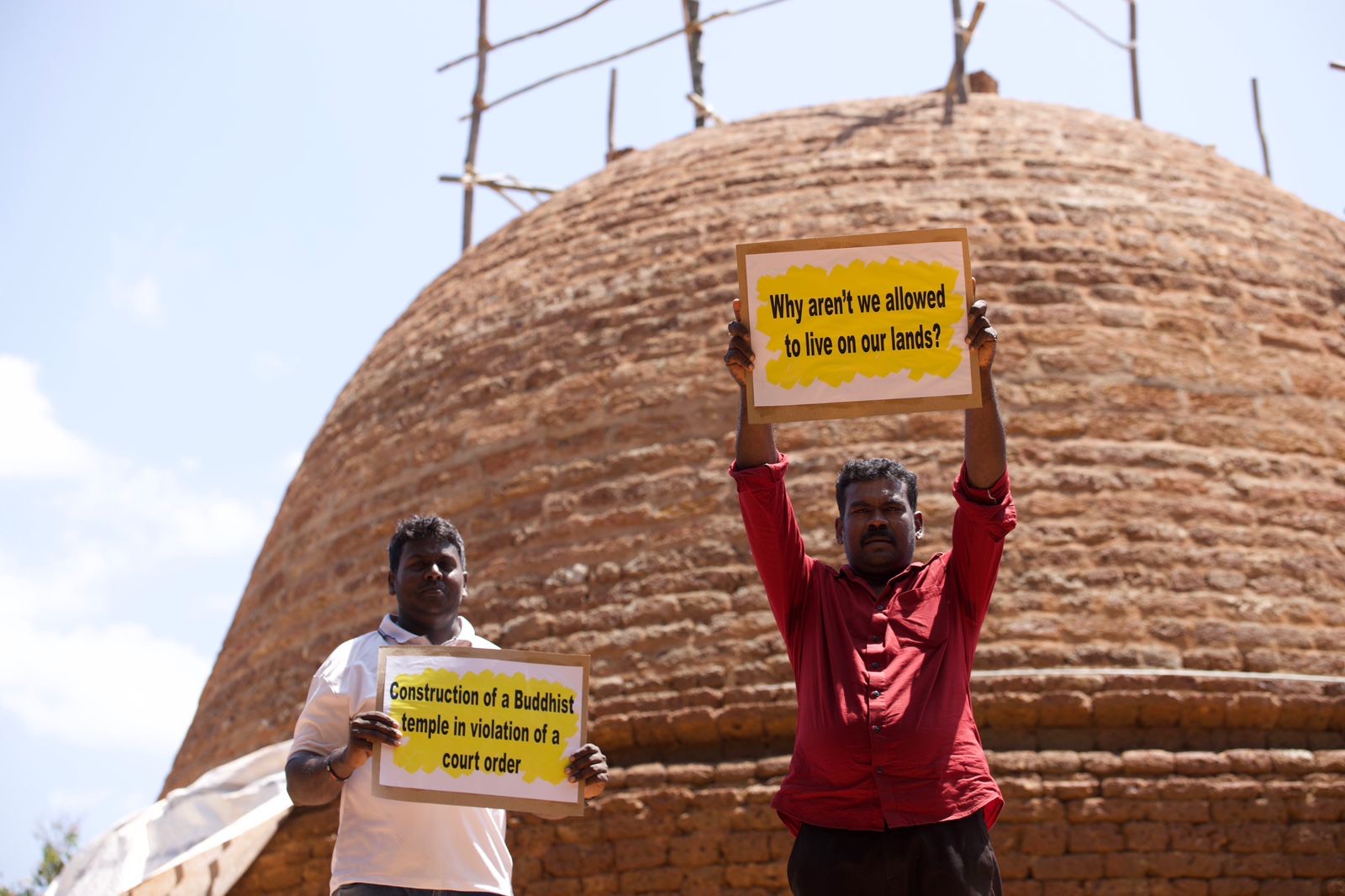Dozens of Tamils were joined by politicians as they demonstrated against the illegal construction of a Buddhist vihara in Kurunthurmalai, Mullaitivu earlier today.
Sri Lankan authorities have continued with the construction of the Buddhist shrine on Kurunthurmalai, a hill-top site of an ancient Tamil temple in the district’s Thannimurippu area, despite a Sri Lankan court order barring any new construction.
.jpg)
.jpg)
Buddhist monks have been joined by Sri Lankan soldiers – who have even set up camp in the area – as construction work has continued despite the court order.
.jpg)
.jpg)
.jpg)
The protestors included locals who have been forced off their native lands by the Sri Lankan state and have demanded an end to colonisation of the Tamil homeland.
The Sri Lankan army and the archaeology department have also intimidated and banned local Tamils from entering the area, as well as previously detaining those who have protested the construction.
.jpg)
.jpg)
The Athi Aiyanar temple, a native place of worship of Tamils located in the Thannimurippu area, has been targeted by intense landgrab efforts by Sinhala Buddhist monks over recent years. Their efforts have been met with fierce resistance from locals which in 2018 led to a court order decreeing that no changes could be made to the site. The court also stated that the archaeology department had abused its power in allowing Buddhist monks to survey the area.
In January 2021, Vidura Wickramanayaka, Sri Lanka's state minister for 'national heritage', accompanied by army soldiers and archaeology department officers, led an event at Kurunthurmalai, in which a new Buddha statue was placed and consecrated at the site of the Athi Aiyanar temple despite the court order banning them to do so. Since then, the Sri Lankan army and the archeology department have intimidated and banned local Tamils from entering the area.
.jpg)
.jpg)
.jpg)
.jpg)
.jpg)
.jpg)
.jpg)
We need your support
Sri Lanka is one of the most dangerous places in the world to be a journalist. Tamil journalists are particularly at threat, with at least 41 media workers known to have been killed by the Sri Lankan state or its paramilitaries during and after the armed conflict.
Despite the risks, our team on the ground remain committed to providing detailed and accurate reporting of developments in the Tamil homeland, across the island and around the world, as well as providing expert analysis and insight from the Tamil point of view
We need your support in keeping our journalism going. Support our work today.
For more ways to donate visit https://donate.tamilguardian.com.


